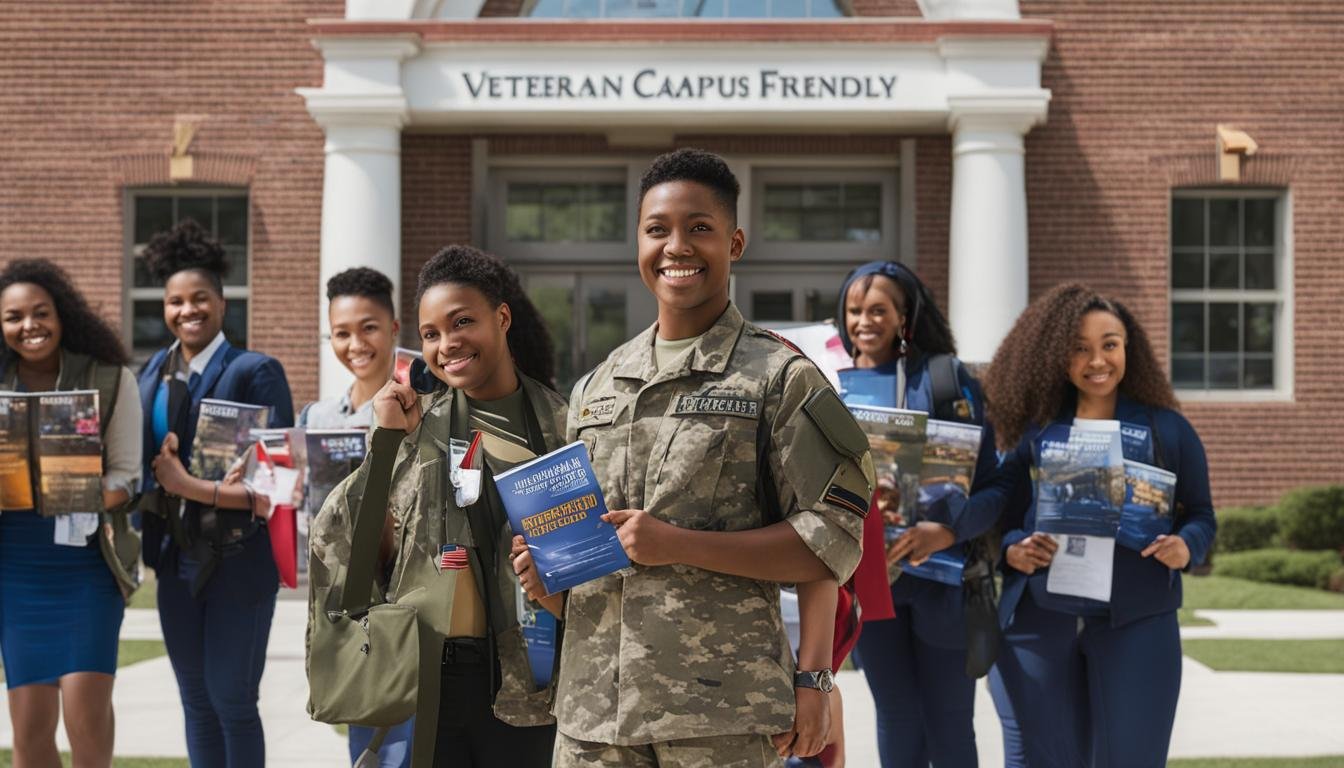Veterans face unique challenges in the college application process compared to traditional students. Studies have shown higher rates of health-risk behaviors and psychological disorders, such as substance abuse and PTSD, among veterans in college. Veterans may struggle to adjust to campus life and interact with non-veteran students. They often face intrusive or unpleasant interactions and difficulty connecting socially with their peers. Additionally, veterans may find it challenging to navigate the logistical aspects of college, such as understanding and accessing available services and managing education-related finances. Retention rates among student veterans tend to be lower, and the transition to a less structured and more chaotic campus environment can result in struggles and dropouts. Improving support systems, educating faculty and students, and enhancing access to health and wellness services are recommended strategies to address these challenges.
Key Takeaways
- Veterans face unique challenges in the college application process.
- They may struggle with adjusting to campus life and interacting with non-veteran students.
- Navigating logistical aspects such as accessing services and managing finances can be challenging for veterans.
- Retention rates among student veterans tend to be lower, and support systems are needed to address this issue.
- Improving access to health and wellness services is crucial for the well-being of veteran students.
Unique Challenges Faced by Veterans in the College Application Process

Veterans face a distinct set of challenges when applying to college, which can impact their overall experience. Understanding these unique obstacles can help colleges and universities better support veteran students throughout the application process.
Age Difference and Classroom Dynamics
One significant challenge that veterans often encounter is the age difference between themselves and traditional college students. As older individuals, veterans may find it difficult to relate to and connect with younger students in the classroom. This can create a sense of isolation and hinder their ability to fully engage in the academic environment.
Anti-Military Sentiment
In addition to age differences, veterans may also face anti-military sentiment on campus. This can manifest in various ways, such as negative stereotypes or prejudiced attitudes towards veterans. These interactions can be emotionally challenging and make it harder for veterans to integrate into the campus community.
Transitioning with Disabilities
Veterans with physical or mental disabilities may encounter additional barriers when transitioning to college life. Accessible facilities and support services tailored to the specific needs of disabled veterans are crucial for ensuring their success and well-being on campus.
Impatience and Sense of Isolation
Impatience with the academic process and a sense of isolation are common challenges for veterans in the college application process. Military service often requires high levels of structure and discipline, which may not be immediately present in the college setting. This adjustment can lead to frustration and a feeling of being disconnected from their peers.
Table: Overview of Unique Challenges Faced by Veterans
| Challenges | Explanation |
|---|---|
| Age Difference and Classroom Dynamics | The age gap between veterans and traditional college students can create difficulties in relating and connecting with peers, affecting their integration into the academic environment. |
| Anti-Military Sentiment | Veterans may encounter negative stereotypes or prejudiced attitudes towards their military background, hindering their ability to feel accepted and supported on campus. |
| Transitioning with Disabilities | Veterans with physical or mental disabilities may face additional challenges in accessing resources and accommodations necessary for their success in college. |
| Impatience and Sense of Isolation | Veterans may experience impatience with the less structured academic environment and a sense of isolation, as they adjust from the highly regulated military life to the freedom of campus life. |
Strategies for veterans to overcome challenges in the college application process

Veterans face unique challenges during the college application process, but there are strategies they can employ to overcome these obstacles and achieve success in their academic journey. Here are some effective strategies for veterans:
1. Build a Support System:
It is essential for veterans to establish a strong support system consisting of friends, family, and colleagues who understand their aspirations and can provide emotional support and guidance throughout the college application process. Having a network of individuals who can offer assistance and share their experiences can make a significant difference in navigating the challenges veterans may encounter.
2. Set Goals:
Prior to applying to college, veterans should set clear goals for themselves. By defining their objectives and desired outcomes, veterans can stay focused and make informed decisions about their education. Setting goals helps create a sense of direction and purpose, motivating veterans to overcome challenges and persevere through any difficulties that may arise.
3. Utilize Available Resources:
Veterans should take advantage of the benefits and resources available to them. One such resource is the Post-9/11 GI Bill, which provides financial support for education expenses. Understanding the benefits and eligibility criteria for programs like the GI Bill ensures that veterans receive the necessary financial assistance to pursue their academic goals.
4. Find Military-Friendly Colleges:
Veterans should research and identify colleges that have robust support services specifically tailored to the needs of veteran students. These military-friendly colleges often have dedicated staff and resources to assist veterans in their transition to campus life, provide academic support, and offer guidance on accessing various resources on campus.
5. Explore Online Education Options:
Online or distance education can provide veterans with the flexibility they need to balance their other responsibilities while pursuing their education. These programs accommodate veterans’ unique schedules and allow them to learn at their own pace, making it easier to overcome challenges such as commuting or conflicting work schedules.
6. Prioritize Credit for Military Experience:
Veterans can leverage their military experience to earn college credits and potentially reduce the time and cost of earning a degree. Many colleges offer credit for specific military training and experience, providing veterans with a head start in their academic journey and enabling them to focus on advanced coursework.
By implementing these strategies and utilizing the available resources, veterans can overcome the challenges they may encounter during the college application process and achieve their academic goals.
What Are Some Common Challenges in the College Application Process for Veterans Related to Deadlines and Timelines?
When it comes to college application deadlines, veterans face unique challenges. Navigating the various timelines for submitting transcripts, test scores, and military service documentation can be overwhelming. The transition from military to civilian life adds another layer of complexity to meeting college application deadlines veterans.
Conclusion
The college application process can present unique challenges for veterans. From difficulties in adjusting to campus life and interacting with non-veteran students to navigating the logistical aspects of accessing services and managing finances, veterans face various obstacles in pursuing their education.
However, with the right strategies and support systems in place, veterans can overcome these challenges and fulfill their academic goals. It is crucial for colleges and universities to provide resources and support specifically tailored to the needs of veteran students. By doing so, they can create a more inclusive educational environment and help veterans thrive in their post-military education journey.
Improving support systems, educating faculty and students, and enhancing access to health and wellness services are recommended strategies to address the challenges veterans face in the college application process. By addressing and alleviating these challenges, colleges can ensure the successful integration and overall academic success of veteran students.



